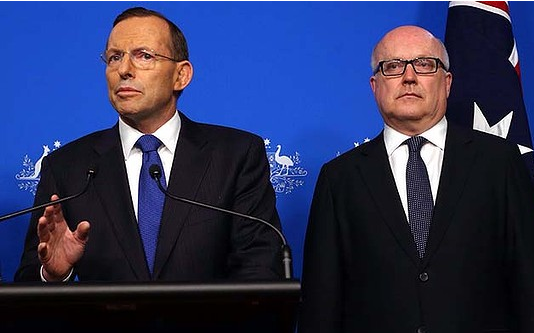
Attorney-General George Brandis’s proposed changes to section 18C of the Racial Discrimination Act have been scrapped.
Six months after Brandis announced his intentions to change the laws in line with the Coalitions pre-election commitment, the cabinet voted unanimously to dump the plans on Tuesday.
In the face of more than 5000 submissions overwhelming against the changes, as well as opposition from many community groups the government appears to have bowed to public pressure.
Following a sharp drop in popularity following the tough budget it isn’t surprising there was little appetite to try and push the unpopular changes through a hostile senate that is still blocking many of the government’s key budget measures.
But why did the changes to 18C fail?
Fairfax media quoted an anonymous cabinet source who said,“As part of combating terrorism, we want the moderate Muslim community to be onside.”
This is an obscure reason that seems to be have only been raised in relations to the governments increased counter-terrorism measures announced earlier this week.The reality is that the changes haven’t been popular since March and simply that Brandis failed to get broad public support for the changes.
Minority groups were always going to be against the laws, however Brandis’s failure was that he was unable to convince the broader white community.
18C primarily came into focus after Herald Sun columnist Andrew Bolt was found guilty under the current laws in 2011. Since then much of the debate around 18C has been framed as a ‘freedom of speech’ debate.
It was in this vain that Brandis infamously declared in March this year that everyone had the “right to be a bigot.”
But the freedom of speech debate gathered little resonance in the community, most likely because most people don’t feel like they have their freedoms limited. 18C is an obscure and rarely used law that while important as a community standards indicator, effects few people.
If 18C stopped Protective Service Officers pulling African-Australians off trains for no reason, or stopped that security guard following you through the store, if the law was used to prosecute people for everyday racist speech against Aboriginal and Torres Strait Islander people, the story would have been different.
It’s hard to convince people they need more free speech, when they don’t feel their speech is being restricted.
While racism in Australia is undoubtedly well and truly alive, it isn’t particularly popular to label yourself a ‘racist’. Bolt and Brandis aside, not many people were willing to stand on the street fighting for the rights of the openly racist.
That is where Bolt comes in, positioning himself, as always, as the the brave one willing to stand up against political correctness, a kind of ‘White man vs the world’ hero.
Bolt unleashed a tirade of criticism against the dropping of the 18C changes on 2GB last night, saying that Australia was being, “being asked to assimilate to immigrant values”.
While his argument that white people as the majority are being asked to assimilate is a bit difficult to buy, it’s no surprise Bolt was quick to pick up on the theme; White people sure do know a lot about forced assimilation.

